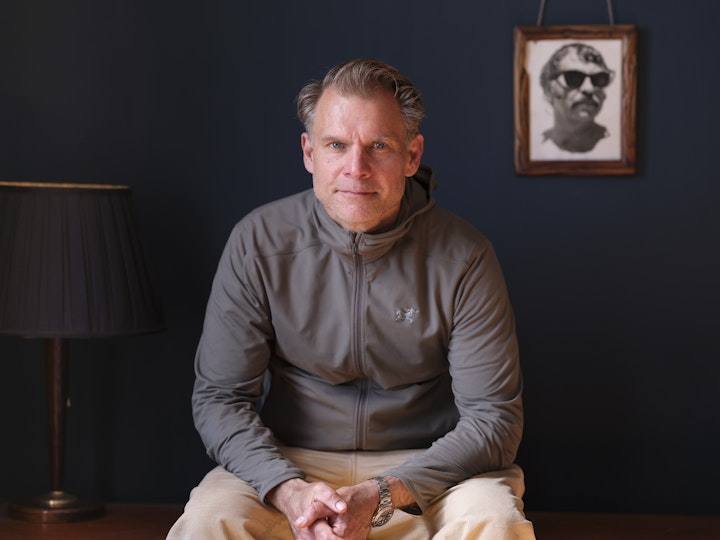
Heinz Leopold Klapp was born in 1919 in Vienna to Jewish parents. Though not religious, being Jewish shaped his fate. As Nazi threats spread, his London-based uncle urged him and his mother, Anna, to flee to England. She chose to stay. At 19, Heinz raised funds selling black-market cigarettes and travelled through Europe, claiming refugee status in Switzerland. Taken to the Orkney Islands, he joined the British Army as a radiologist—and kept his initials, becoming Henry Lancelot Keith. His mother was murdered in Riga in 1942, and his father in Shanghai that same year. After the war, Henry started from nothing in London, building businesses in fashion, hospitality, and property. He helped shape vibrant 1960s London and lived a full life despite immense loss. He died in 1988, aged 69. This project celebrating migration and first-generation immigrants is dedicated to him.
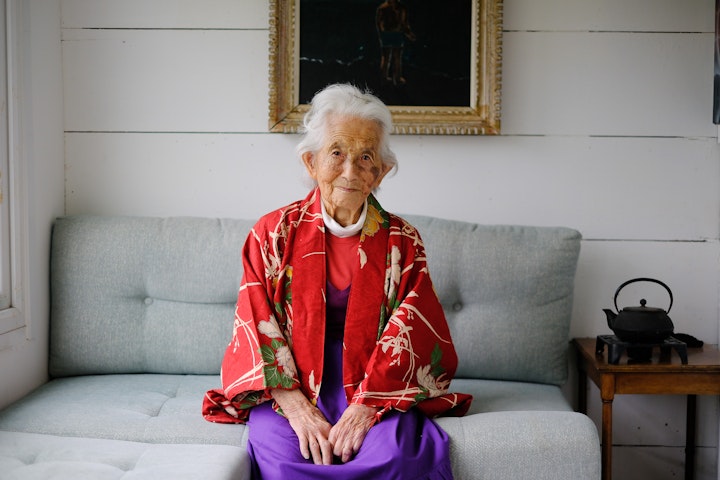
Michiko Mitsuishi Dodd, 101, was born in the seaside town of Kobe, Japan. One of four children, her eldest sister “eloped with an idiot,” breaking their father’s heart. He died when Michi was 12. In 1947 she met her husband Jeremy at a party on an RAF base, where he worked in the hospital and she as an interpreter. “He looked very miserable, and I felt sorry for him,” she said. They had three sons and a daughter. When Jeremy returned to England, Michi stayed behind in Japan, where life was harsh for single mothers. Her father-in-law helped bring her to England, where they married. After time in the USA and Japan, they settled in the UK but later divorced. Michi and the children bought and converted railway carriages on the south coast—she haggled the price down from £3,000 to £2,750. Sixty years later, she still lives there, now cared for by her daughter Rachel. Her hearing may be fading, but her independence and spirit remain undimmed.
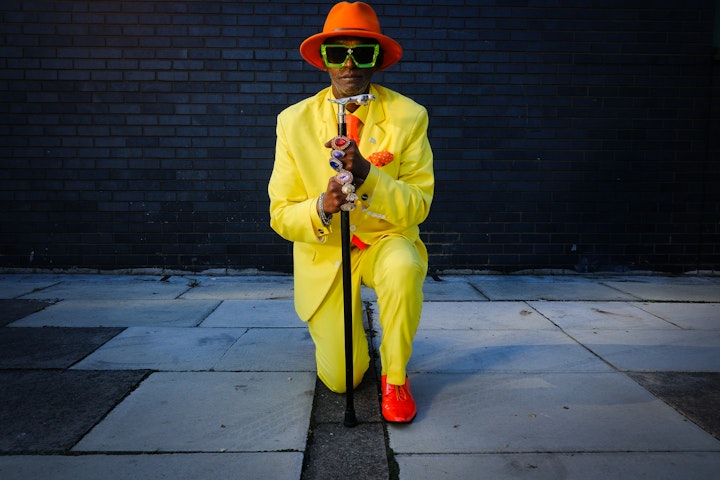
Jama Elmi was born in Somalia and moved to the UK aged eight, when his father, a former ambassador, fled the Civil War with his six children. Starting school in Chalk Farm, Jama found it hard to make friends—until, at nine, he bought pink trousers and a Hawaiian shirt. Instantly, everyone wanted to know him. Years later, on a dull Central Line journey, he looked around and saw only black, white, and grey. Frustrated, he went shopping, reigniting his love of flamboyant dressing. Now he owns around 90 colourful suits. A mental health support worker, Jama wore his rainbow suit to his job interview; residents’ smiles and hugs won him the position on the spot. His outfits now play a vital therapeutic role—residents choose colours for him to wear, sparking joy and conversation. Known as “London’s Best Dressed Man,” Jama brings brightness everywhere, especially to his mother, though she frets about the cost.
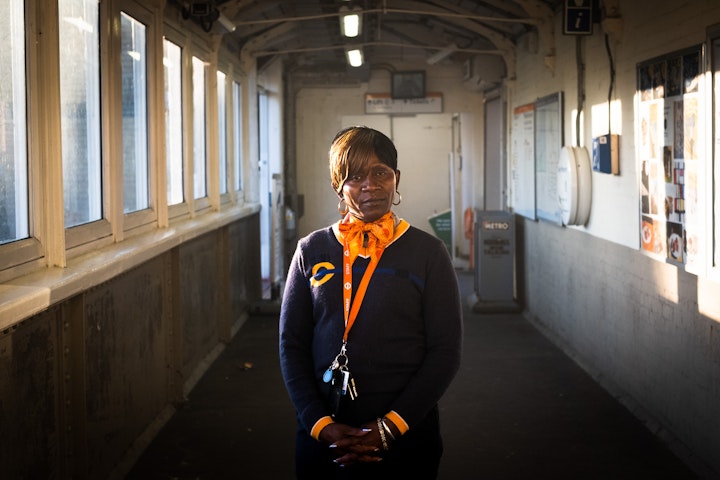
Viveth Hardy is known as “the station lady that sings.” Jamaican born and bred, she moved to the UK in 2002. Why? “It’s a mystery!” she laughs. “Wasn’t a choice. Spontaneous. Things happen—you just move to it. I’m a gambler.” In Jamaica, she was a mother of four boys and worked as a machine operator in a snack factory. After moving to London, she spent four years as a carer before finding her true calling—lifting commuters’ spirits with song. “It warms my heart,” she says. “It’s something from within. I don’t do it because I want to sing—it’s spiritual. I can’t control it. If it comes, I have to get with it. I don’t have any shame in my game. I sing on the platform, on the street, at home. I wake up with a song in my head—I just sing. I’m like a boom box.” A boom box, indeed—one that’s become a beloved legend of Kensal Rise.
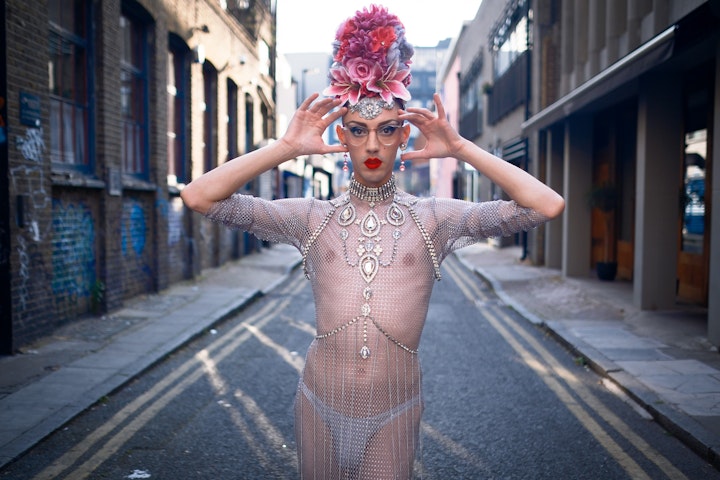
Florent Charly Romain Bidois was born in 1986—“just like Lady Gaga.” His parents, both cleaners near Rennes, still live where they grew up, but Florent always felt different. “I’m a Breton, a sailor, a traveller, an adventurer. I’m Indiana Jones. Rennes was too small and France too judgmental.” In 2011 he came to London for a pattern-cutting internship and instantly felt he belonged. Drawn by the English language, he found freedom to express himself. Now working in fashion retail, he thrives in creativity. In 2022 he was contestant #12 in the 50th “Alternative Miss World”: “I didn’t win, but I won hearts.” He also leads the monthly “Colour Walk” at Old Spitalfields Market, celebrating individuality and flamboyance. Florent identifies as male but uses fashion to express beauty beyond gender—mixing shirts, dresses, heels, and makeup without wigs or padding. Often mistaken for a drag queen, he smiles: “Maybe one day—on stage.”
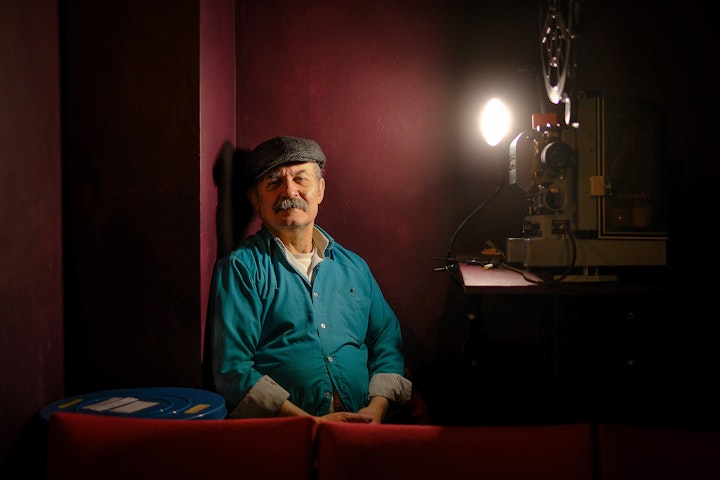
Umit Mesut Hasan, 62, is something of a local legend. A Turkish Cypriot from Lefke, he came to the UK aged nine. His grandfather Behjet owned a cinema, sparking a lifelong love of film. After leaving school, Umit worked as a rewind boy at the Rio Cinema in Dalston, eventually becoming head projectionist. His shop, Umit & Son, began as a grocery 35 years ago but soon transformed into a haven for cinephiles—filled with reels, videotapes, posters, and, at its heart, a tiny cinema. It’s more museum than shop, a love letter to celluloid that’s drawn journalists, filmmakers, and a feature-length documentary. His favourite films are King Kong, Bicycle Thieves, and Sunset Boulevard. Surrounded by vinyl, VHS, and old radios, Umit shuns modern tech—no phone, no computer, cash only. Hospitalised during Covid, he recovered with the same resilience that’s kept his shop—and his spirit—alive amid a changing city.
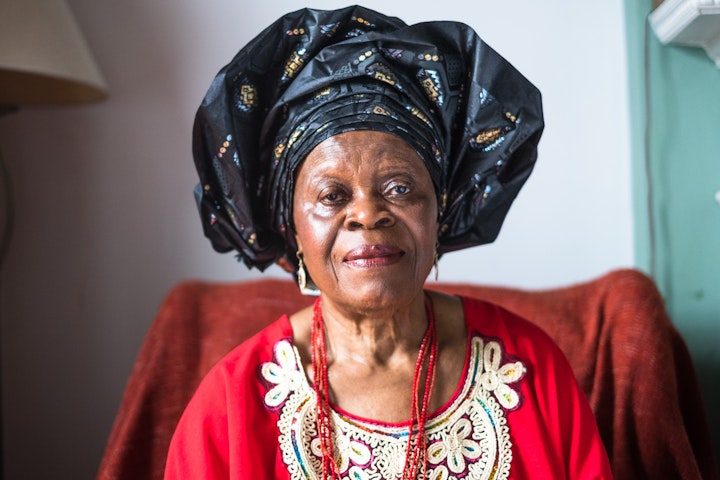
Elizabeth Akalawu was born in Imo State, South East Nigeria, to yam-farming parents. A talented student, she trained in general nursing and midwifery, planning to come to the UK for two years—yet sixty years later she’s still here. Early homesickness didn’t stop her. Nursing felt natural; she always wanted to help people. When she arrived, she faced skepticism—despite Irish-trained credentials, she was asked to redo her studies. Elizabeth pushed back, negotiating cultural training down to one year. In the 1980s, as a Brent school nurse, she discovered black parents often avoided parents’ evenings, leaving disadvantaged children behind. ‘Nurse Liz’ pioneered home visits, inspiring others across the borough. She balanced nursing and motherhood for fifty-four years, loving midwifery but aiming higher. She’s proud of making things easier for future generations and of her lasting impact on children and the NHS.
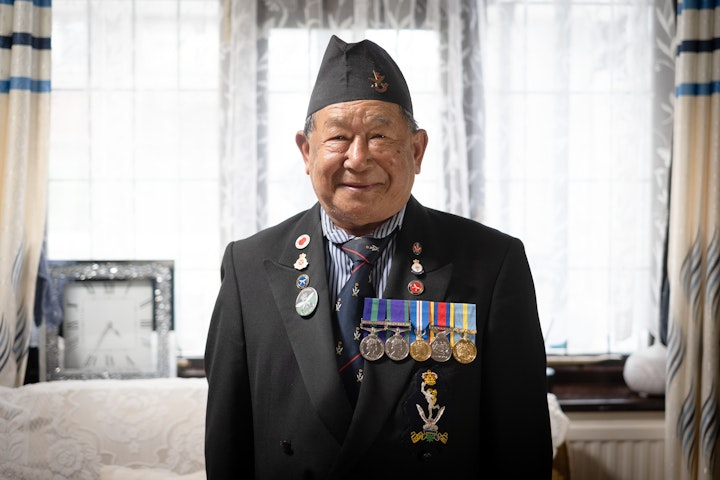
Til Man Rai was born in 1947 in the remote village of Deusa, Solukhumbu, Nepal. At 14, scouts brought him to join the Gurkha Boys Company, a week’s walk from home. Trained until 18, he became a Radio Relay Operator in the Queen’s Gurkha Signals, soldier no. 2115429, joining one of the world’s most elite forces. The Gurkhas have served Britain for over 200 years, earning 13 Victoria Crosses and thousands of medals, with over 50,000 casualties in the World Wars. Til Man served in Malaya during the 1962-66 Borneo Confrontation, posted across Hong Kong, Singapore, and Borneo, but was made redundant before qualifying for a pension. Returning to Nepal, he farmed and carved to support his family. In 2013, aged 66, he sold land to come to London, relying on a fellow villager for shelter. Now 76, he sends whatever he can home. Many elderly Gurkhas face similar hardship, yet Til Man remains hopeful, continuing to fight for their rights.
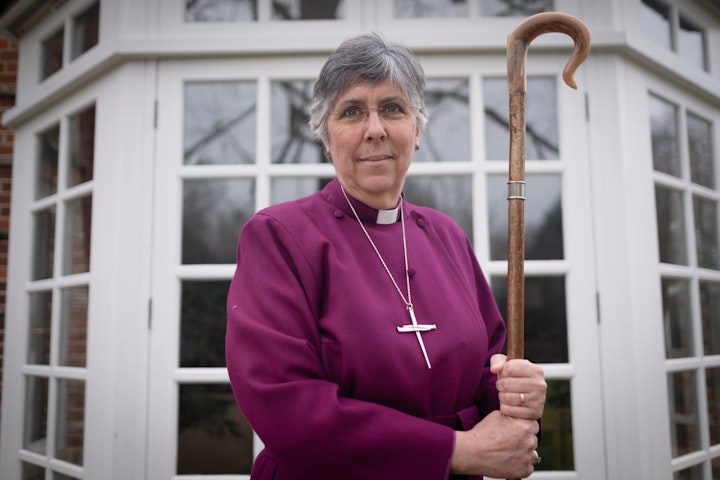
Bishop Guli Francis-Dehqani was born in Isfahan, Iran, in 1966. Her father, Hassan, from a devout Muslim family, chose Christianity at 18 and became a bishop before Guli was born. In post-revolution Iran, their faith brought danger. Guli keeps the bullet-ridden pillowcase from the night gunmen attacked her family, injuring her mother. Her father lived in exile in Cyprus, while Guli, her mother, and siblings stayed behind. After her brother was assassinated, they escaped on the last BA flight from Tehran. Despite refugee trauma, Guli thrived at boarding school, studied music, worked at the BBC, and trained for ordination. She became the first woman from a minority ethnic background ordained as an Anglican bishop in England. Now Bishop of Chelmsford, she sits in Parliament as a Lord Spiritual and administered Holy Communion at the Coronation. The staff she carries, once her father’s, connects her to her heritage and the church in Iran.
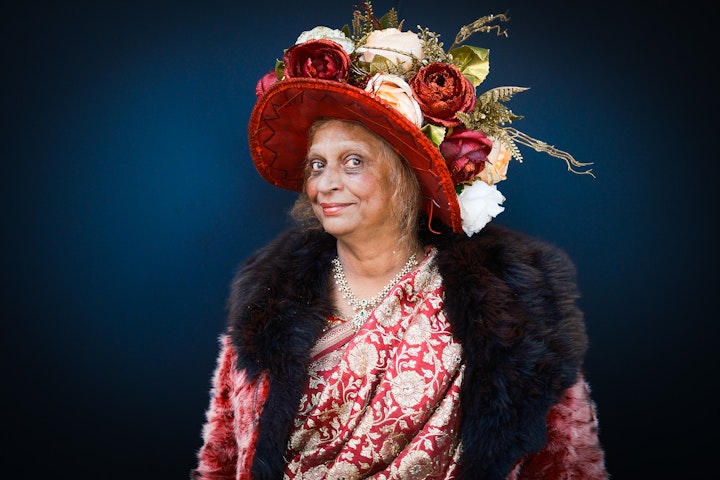
Gladys Loretta Richardson was born in 1953 in Mangalore, Karnataka. A teenage athletics champion, she was drawn to nursing after reading a Mills & Boon novel. While working in a hospital, she fell in love with a doctor, but their different faiths made marriage forbidden. Heartbroken, she moved to Bombay, rising quickly to theatre nurse. In 1982 she moved to Riyadh, where she embraced hospital life and the party scene. In 1993 she met Martin, a British engineer, and they married in 1995 after returning to the UK. Over decades, Gladys worked across London and Essex hospitals, often standing up against bullying and winning a court case for unfair dismissal. She retired in 2023 after 27 years of NHS service. Her remedy for hard times? Cooking Indian food for the homeless. She still visits Mangalore and this year met her ex-boyfriend again—his loss was the NHS’s gain.
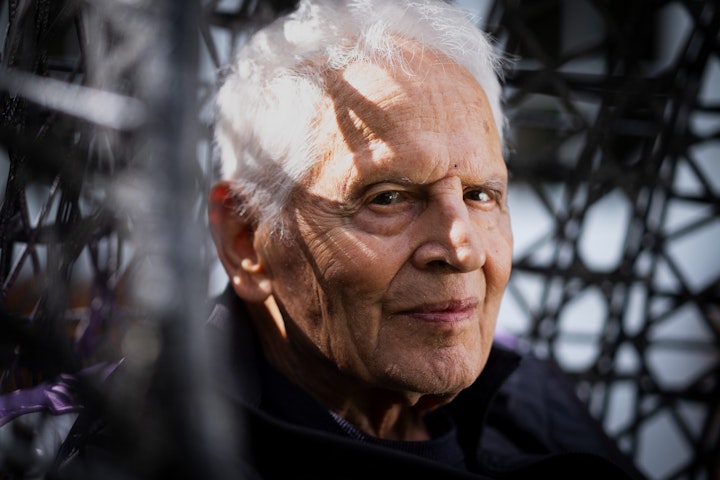
In 1947, British India was divided into India and Pakistan, and Om’s family land fell on the Pakistani side. Millions were displaced, including Hindus and Sikhs fleeing to India. Om’s older brother had already moved to the UK, inspiring him to arrive in 1957 for a two-year business management course. Land reforms in India reduced his family estate from 3,000 to 300 acres, eliminating the home he might return to. He stayed, building a career in airlines with BOAC, Alitalia, and EgyptAir. In 1960, he returned briefly to marry; his wife joined him in London and worked at Heathrow, taking in lodgers to make ends meet. Om retired in 1998 after over forty years of work. Now approaching his 92nd birthday and 65th wedding anniversary, he celebrates two children and six university-educated grandchildren. His journey reflects resilience, perseverance, and the quiet dignity of first-generation migrants building lives in Britain.
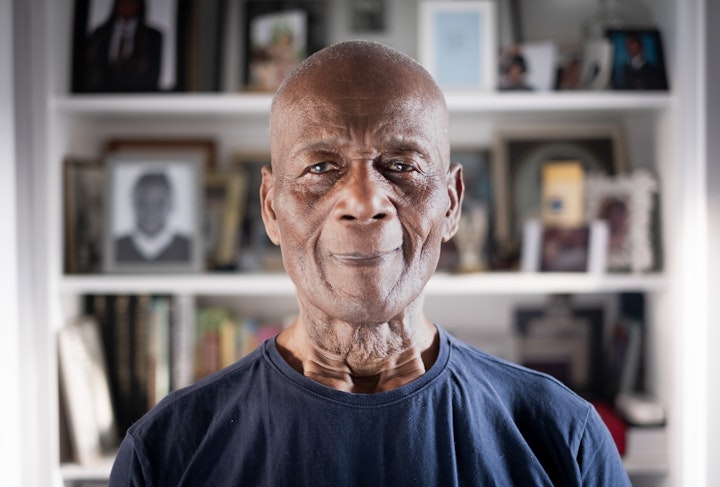
Rudy William Agard was born in Barbados in 1941. He left school at fifteen, working first as a hotel gardener, then on a sugar cane plantation, developing a passion for bodybuilding. Both his parents died young, his father from alcohol. In 1961, his uncle in the UK invited him over, and Rudy arrived to live where Trellick Tower now stands. Struggling at first, he adapted and started work with British Rail as a carriage cleaner during the steam-engine era, even enduring soot-filled weeks. After ten years, he was promoted to charge-hand, supervisor, and manager, giving 47 years of service. He faced racism and confrontations but grew philosophical, recognising the challenges of integration and government unpreparedness. Now, he still attends the gym six days a week, a passion that helped him stay disciplined. Rudy’s story is one of adaptation, determination, and quiet strength across decades in a new country.
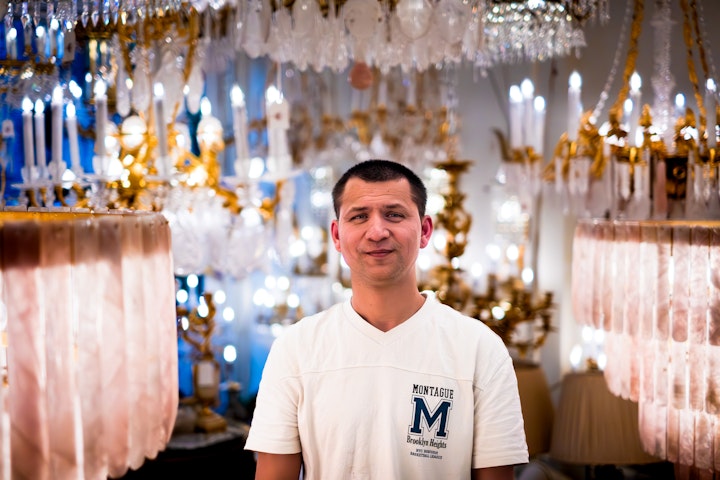
Dimitri Stefanov’s shop on the King’s Road, Chelsea, is a lighthouse that draws people in. Surrounded by friends he has just cooked for—his London family—his warmth is evident. Born in Bulgaria, Dimitri had little schooling. At fourteen, he moved with his parents to Greece and worked in polytunnels, memories he recalls fondly. In 2009 he came to the UK to join a friend running an antique lighting shop. Despite no experience, he loved the work. In 2014, chandelier maker Philip Turner took him under his wing, teaching restoration and creation. In 2010, Dimitri transformed discarded chandelier frames with raw rock crystals—selling them within days. Encouraged by Philip, he soon began making his own lamps and chandeliers. Today, he is a leading rock crystal chandelier specialist, with clients including celebrities, royalty, Claridge’s, Annabel’s, and Gaudi Museum, Barcelona. Dimitri treasures Philip’s legacy and his craft, though he still fondly remembers the polytunnels.
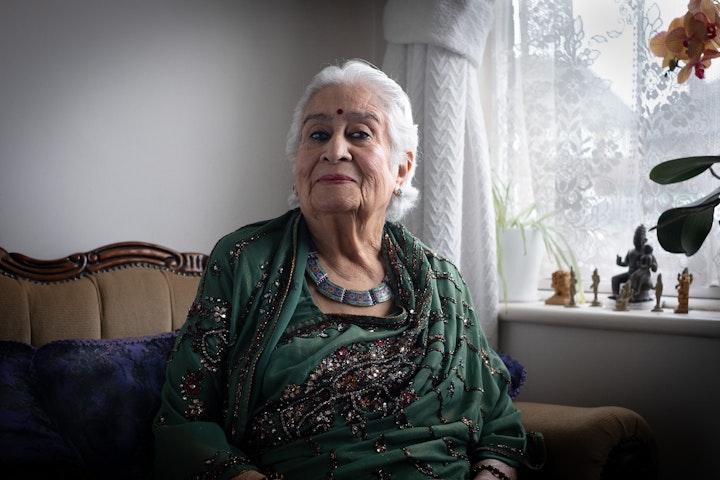
Dr Jai Kumari Gir was born in 1934 in Hyderabad, describing her childhood as “completely idyllic.” She once delivered two of her own brothers and was nicknamed the “gypsy girl” for her love of travel and adventure. Drawn to England and its “classy gentlemen,” she studied tirelessly. Though admitted to Girton College, Cambridge, currency restrictions delayed her move, so she studied in India before joining West London School of Medicine in 1956. Quick to integrate, she “loved necking ciders” around Holland Park and Notting Hill. As a gynaecologist and later GP, she saw first-hand the NHS under pressure in the 1960s. Jai believes fighting discrimination starts with mothers, not governments, and celebrates Britain as a nation of immigrants. I met her with her son Ayas, who said fondly, “You look so very wise.” She replied, “No, I don’t—I look like a witch.”
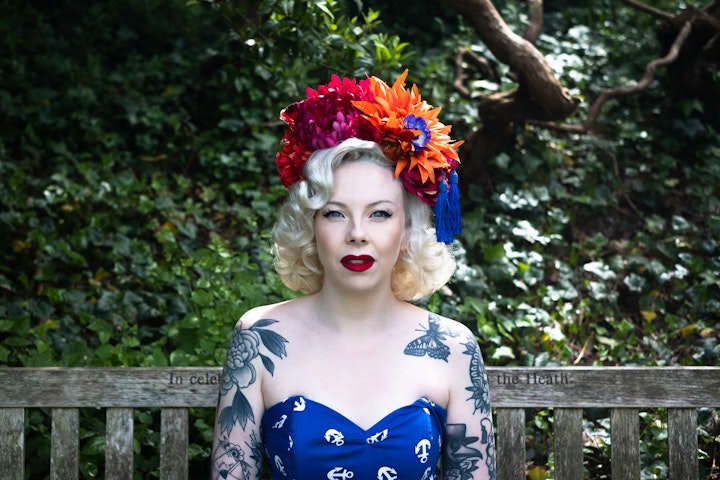
Sinead Stone née Doherty is recently married and still adjusting to her new name. From Donegal, Ireland, she grew up with her tall brother Eugene, her fisherman father, and her carer mother, enjoying a “free” childhood. She studied children’s and general nursing at Trinity College, Dublin, the first in her family to go to university, thanks to her parents’ hard work. Initially drawn to palliative care, she switched to paediatrics and joined Great Ormond Street in 2015, later specialising in paediatric allergy. Her work involves keeping children healthy in outpatient clinics, a challenge that keeps her on her toes. London has allowed her to flourish personally and creatively, embracing her style and freedom. Sinead also nurtures a lifelong creative passion: making flower crowns from found materials, bringing old flowers back to life—a small joy that ignites her spirit much like her nursing work.
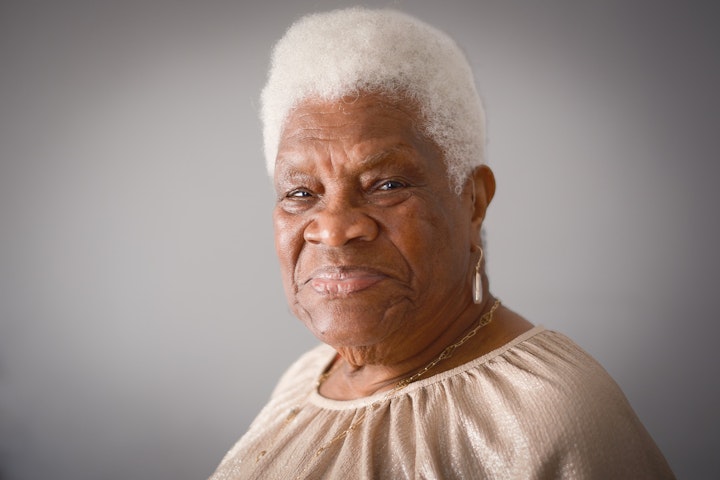
Maud Kathleen Albert, 92, was born in Castries, St Lucia, in September 1931. Her parents lived a subsistence life, baking, farming, carpentry, and keeping bees. Maud left school at 15 to help. At 30, her eldest sister sent for her to the UK, and in December 1960 she travelled on the Merchant Vessel Bianca, leaving her two children behind. She lived with her sister in West London, working as a cleaner to cover rent, navigating smoggy streets by day and avoiding racist Teddy Boys by night. Gradually, the community pushed back, and Maud sent for her children. She married Clayton, a fellow St. Lucian, and together they raised eight children, balancing night and day shifts. Meeting her with daughter Linda, the household’s warmth and busy rhythm were clear. Maud’s children now work across health, education, and social care, while her 21 grandchildren and 17 great-grandchildren continue her legacy of resilience and care.
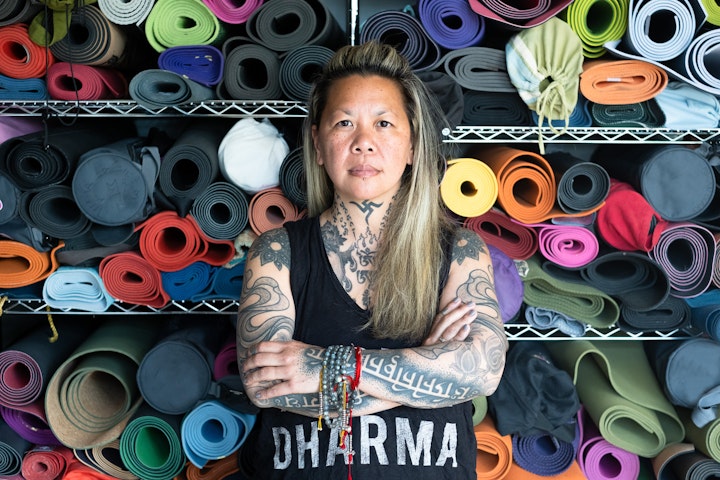
“Life, like those yoga mats, can be messy. It’s how we allow them to unravel and unfold that enables us to make sense of the mess instead of sanitising our experience.” Cat Alip-Douglas was born in Manila, Philippines, in 1972 and moved to New York at seven. Privileged yet independent, she loved being a latch-key kid in 1980s NY. At Rutgers she discovered the NYC rave scene, later planning parties at Condé Nast, where yoga helped her cope with stress and insomnia. September 11, 2001, became a defining moment, reinforcing her spiritual practice. In 2004, she moved to London, adapting to its slower pace. By 2011, she and her husband inherited the London Jivamukti Centre, transforming it into Sangyé Yoga School. Despite Covid’s challenges, the centre continues to serve North-West London, sustained by committed students and teachers. Yoga and community remain Cat’s lifeline, helping her navigate life’s mess with calm and clarity.
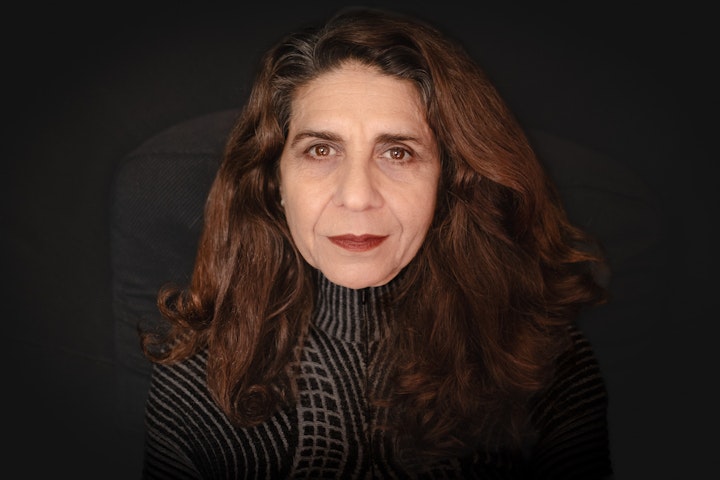
Neda Southgate (Neda Al Atar) was born in Southern Iraq in 1963, one of 14 children. Her father, a wealthy textile merchant, lost his wealth when Saddam Hussein deported Shia Muslims in the run-up to war with Iran. Neda’s mother, with no Iranian heritage and serious health issues, was allowed to stay, and Neda never saw her again. After brief incarceration, Neda fled across the desert to Iran, then to Syria, before joining her brother in the UK as refugees. She studied architecture part-time but switched to fashion at Central St Martins after noticing gender inequality. Following the birth of her two children, she ran a nursery, later closing due to illness. She found her calling in humanitarian work, volunteering at Martlets Hospice and training with the Alzheimer’s Society. She now runs her own business, ‘Alzheimer’s with Compassion’. Across psychology, architecture, fashion, and childcare, Neda truly comes alive working with people with Alzheimer’s and dementia.